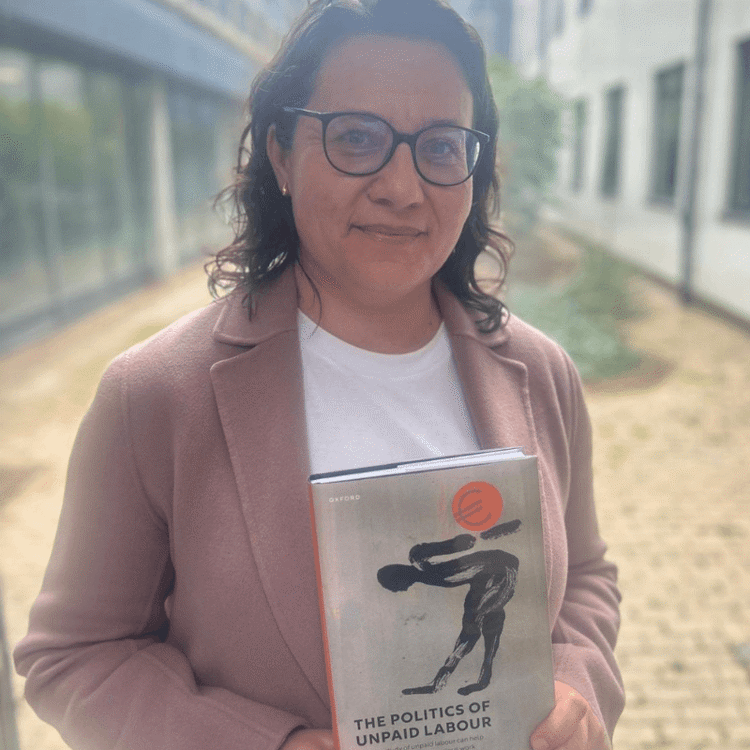The University of Roehampton’s Dr Markieta Domecka has written a book on The Politics of Unpaid Labour. Markieta is a Senior Lecturer in Sociology of Work and Employment and is also a POSE (People, Organisation, Strategy and Entrepreneurship) Research Lead.
Co-authored by Valeria Pulignano (KU Leuven), the book was published by Oxford University Press in February 2025. It explores how the study of unpaid labour can help address inequality in precarious work.

The book introduces the theory of the politics of unpaid labour to advance understanding of inequality within the context of precarious work. It understands unpaid labour as the time and effort people invest to undertake tasks which relate to the work implicitly or explicitly assigned to them, but for which they are not paid. Comparing working conditions in the creative sector such as dance, as well as in residential care and online freelancing in the Netherlands, Sweden, the United Kingdom, Germany, Belgium, France, Italy, and Poland, the book's empirical section is based on a wide range of biographical interviews and work diaries.
It explains that unpaid labour is both shaped by class and serves to reproduce class interests, revealing ongoing changes in welfare, employment, and state institutional policies. It also considers the necessity to establish conditions within the labour market conducive to genuinely cultivating and honouring the diversity of human capabilities and actions within labour structures and promoting their manifestation.
Aimed at scholars, students, policy makers, trade unions, and industry actors who are interested in the exploration of unpaid labour inside and outside the market, and its consequences. Reviews say "This book is a revelation. It extends analysis of unpaid labour to offer a truly novel theorization of uncompensated work by both employees and freelancers. Along the way, it innovatively reformulates a broader theory of labour markets. Bravo!' " - Chris Tilly, UCLA University of California, Latin American Institute, Los Angeles.
